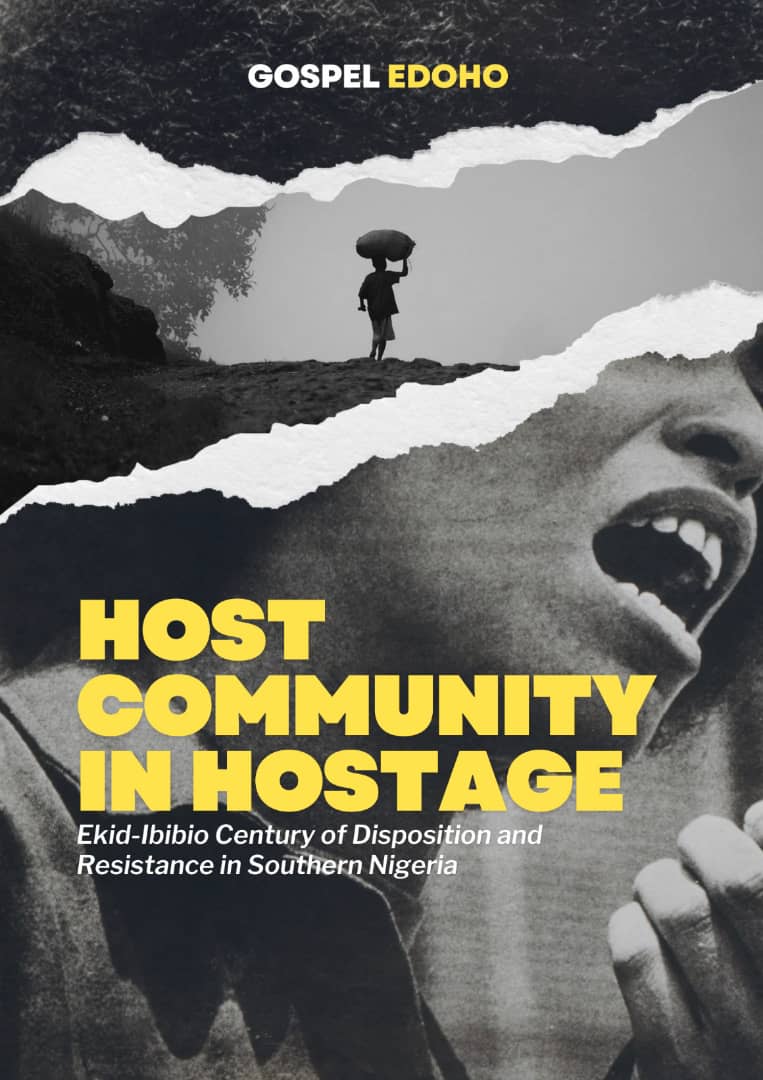OPINION
Host Community in Hostage

Host Community in Hostage
By Gospel Edoho
As the ancient wisdom puts it, “I have seen servants riding on horses, while princes walk on foot like servants.” This resonates deeply with the Ekid people. Amid Nigeria’s complex web of territorial disputes, one conflict stands out for its enduring nature and multifaceted dimensions. The land dispute between the Ekid-Ibibio people and her near neighbours in Akwa Ibom State – a tale of historical grievance, legal ambiguity, and economic intrigue. This struggle is not just about ancestral land ownership; it is a complex interplay of historical accuracy, legal enforcement, political manipulation, and economic control over a people who have long been denied their rightful benefits of their Stubb Creek Forest (Akoiyak), a prized territory that has been the subject of numerous judicial rulings, colonial records, and government whitepapers. Despite these affirmations, the Ibibio subgroup have been denied the benefits of their ancestry, while strangers, neighbours, governments, and foreign multinationals, have ridden on the back of their ancestry, reaping its economic benefits without regard for the historical and legal realities.
For over a century now, after the first judgment in 1916, subsequent appeal and the 1918 Privy Council judgement in London, in favor of Eket, the Ekid people have consistently maintained that they are the rightful owners of Stubbs Creek Forest, citing historical records and judicial rulings in their favor. However, their claims have been repeatedly contested by their neighbours, who have employed a range of tactics to undermine their ownership, from political manipulation to economic coercion. Stubb Creek Forest Reserve, located in Akwa Ibom State, Nigeria, is a vital protected area that showcases the region’s rich biodiversity and ecosystem services. The heavily threatened wildlife reserve is characterized by lush tropical rainforest vegetation, providing a habitat for diverse wildlife, including the declining crocodiles, putty-nosed monkey, red cap mangabey, and Sclater’s guenon populations, along with potentially extirpated populations of African leopards, and Nigeria-Cameroon chimpanzees, elephants, local birds, and other animals. Its conservation significance extends beyond biodiversity preservation, as it also plays a crucial role in regulating the local climate, mitigating the effects of climate change, and supporting water conservation efforts.
The struggle between the Eket people and her near neigbours over land ownership is not just a local conflict – it is a battle for historical accuracy, legal recognition, and economic survival. For centuries, the Ekid people have lived within their coastal Ibibio ancestry, building communities, governing themselves, and protecting their natural resources like other tribes in Africa without existential threats whatsoever. However, colonial interference, government manipulations, and multinational corporations’ corporate interests have fueled repeated attempts to rewrite history, leading to disputes, violence, and legal battles.
This book seeks to establish historical truths about the origins of the Eket (Ekid Ibibio) people, in relation to her neighbours; the Ibeno people, Obolo, Andoni, Bonny etc. To provide judicial and forensic evidence proving the rightful land titles and ownership; correct every misinformation about any distortions that empowered land claims; examine the modern political and multinational’s corporate encroachments on Stubbs Creek Forest (Akoiyak); explore the involvement of Oro, Ijaw, Opobo neighbours and European missionaries in shaping inter-communal dispute. It will also examine the Igbo myth about Ibibio ancestry, and the Niger Delta. Highlight the various roles of successive governments abetting and fueling conflicts; discuss the necessity of the 2023 Akwa Ibom State Map Law and its significance to history; present the modern-day realities and the future of Akoiyak.
Host Community in Hostage tells the history of this complex and multifaceted conflict, exploring the historical, legal, and economic dimensions of the dispute. Through a detailed examination of the various judicial rulings, colonial records, and government whitepapers, this book sheds light on the complex web of interests and alliances that have shaped the conflict over the years. We attempt to examine all the experiences of the Ekid people and their struggles to assert their rights, this book provides a nuanced understanding of the conflict and its implications for the people of Akwa Ibom State and beyond. This book is not just a historical account; it is a call to action for the enforcement of legal judgments and the protection of ancestral lands from illegal occupation and exploitation.
Multidimensionally Yours,
Gospel Edoho
#HostCommunityinHostage
(For References, Email: talkback2gej@gmail.com)
